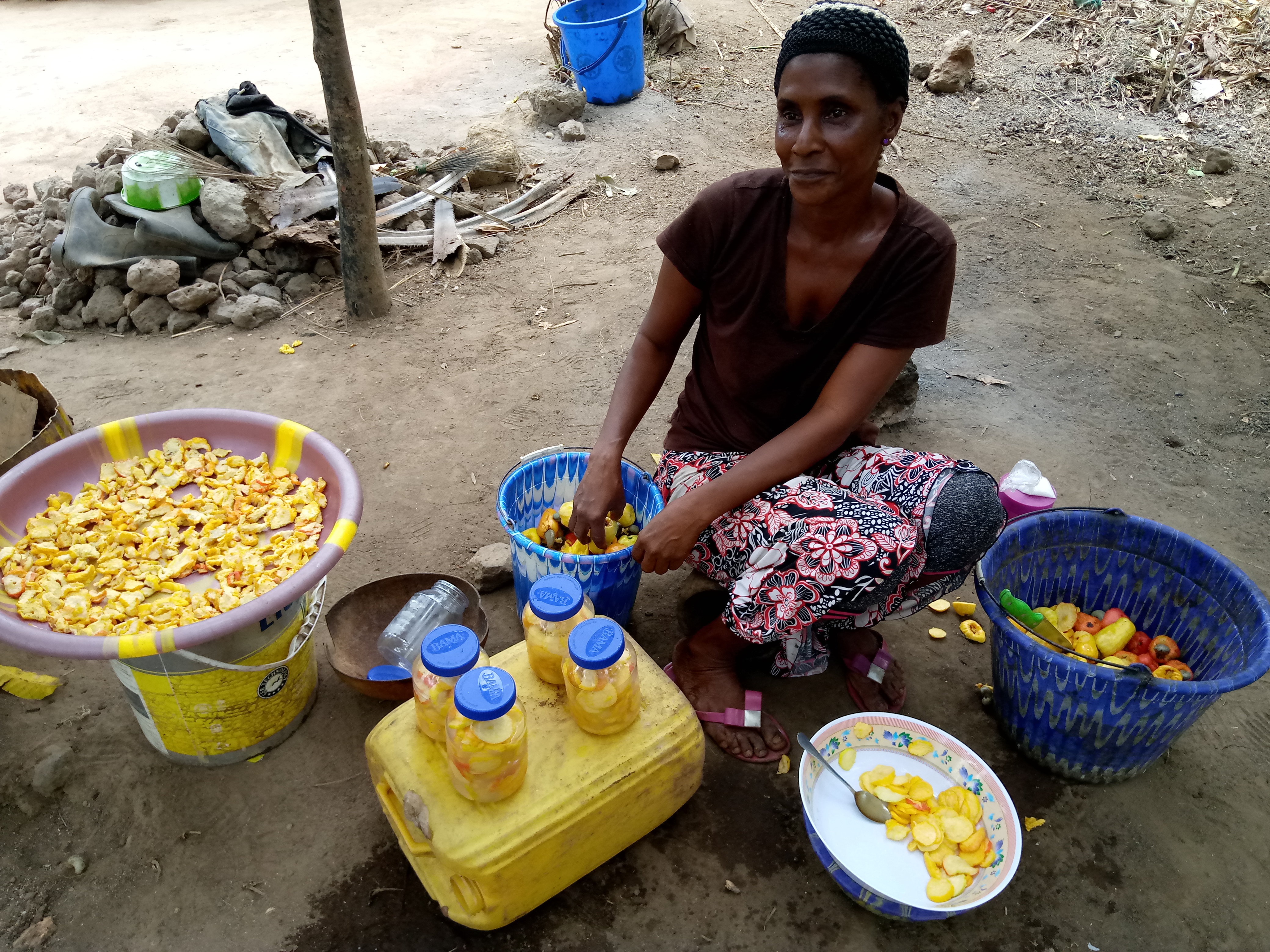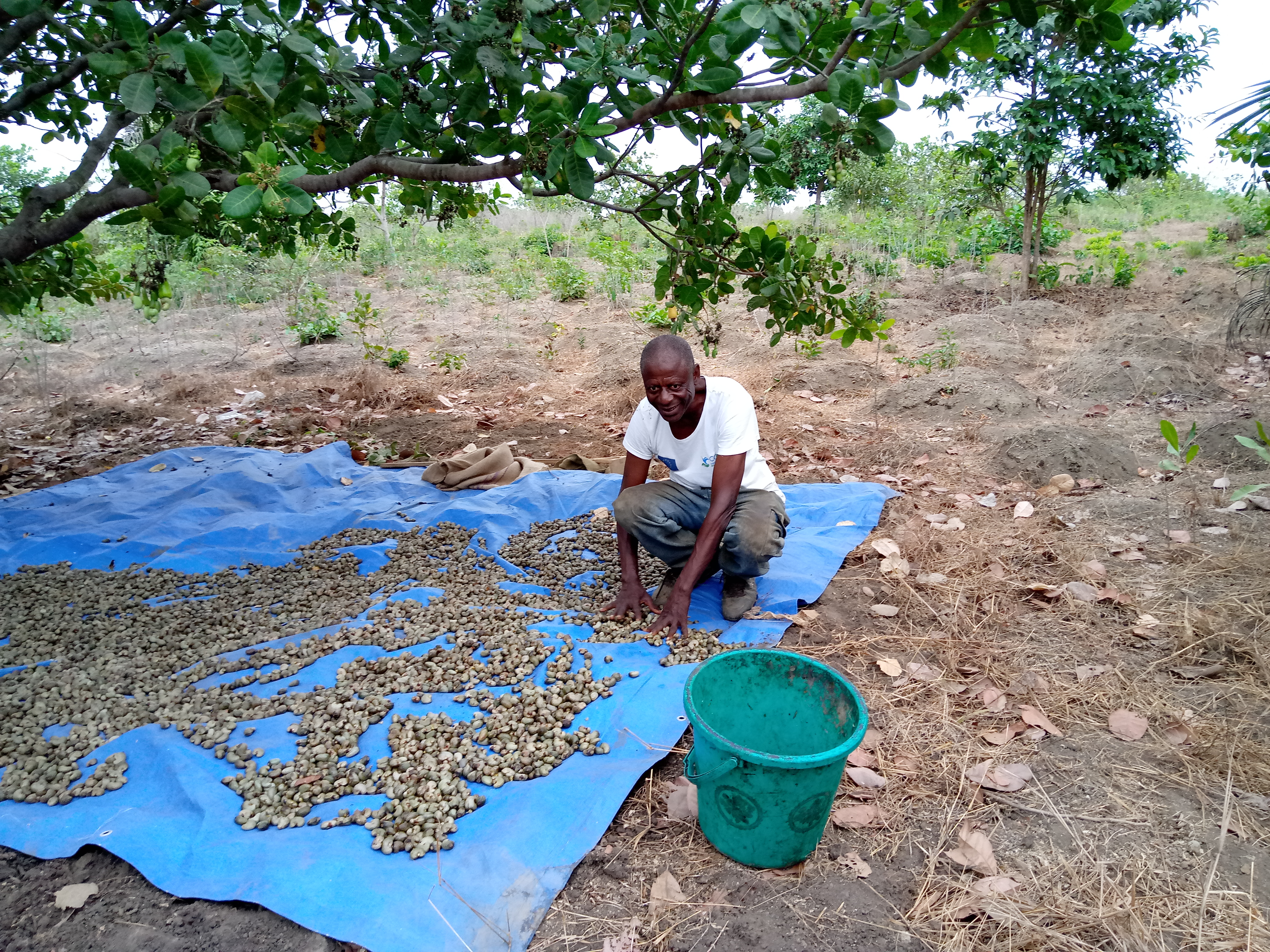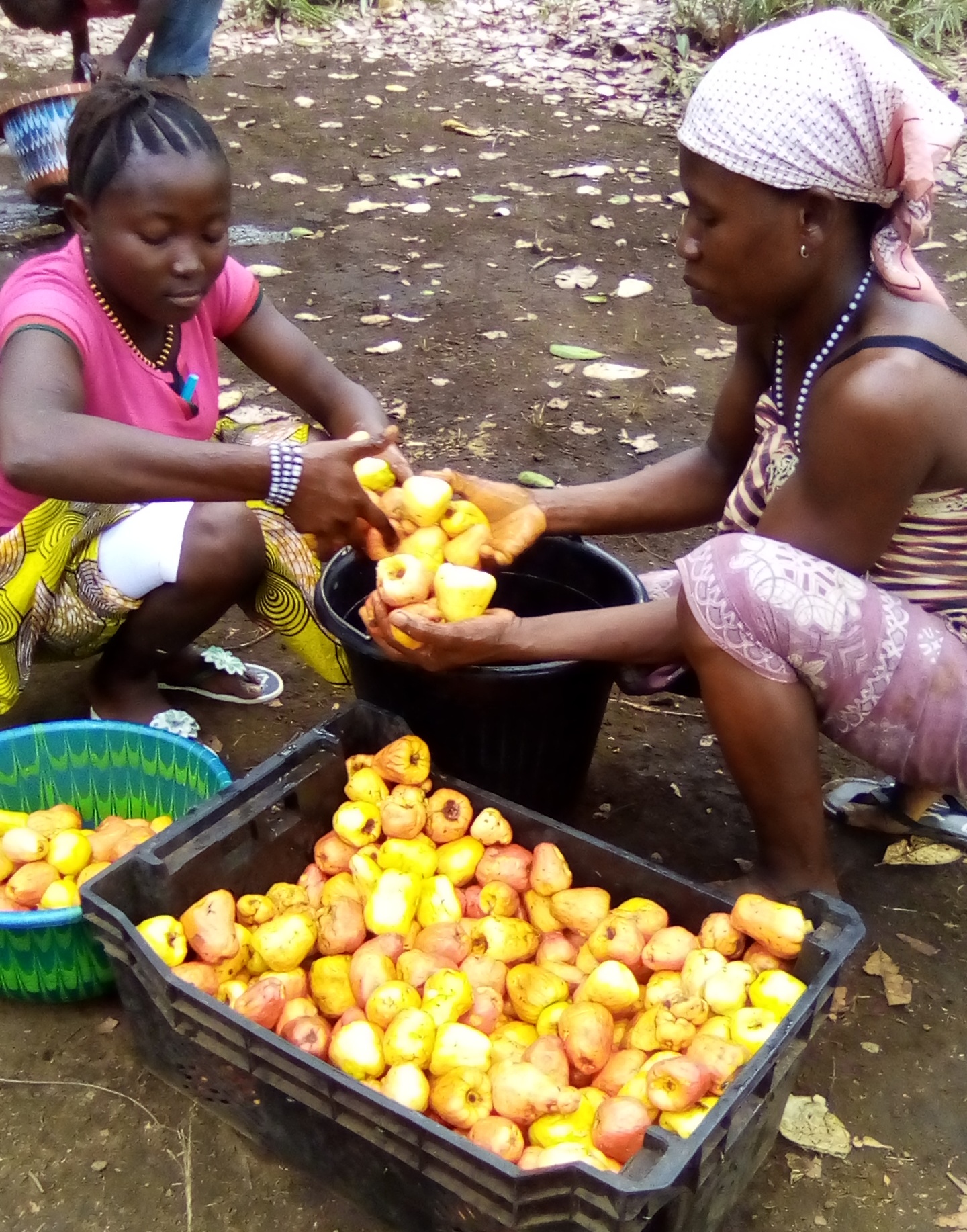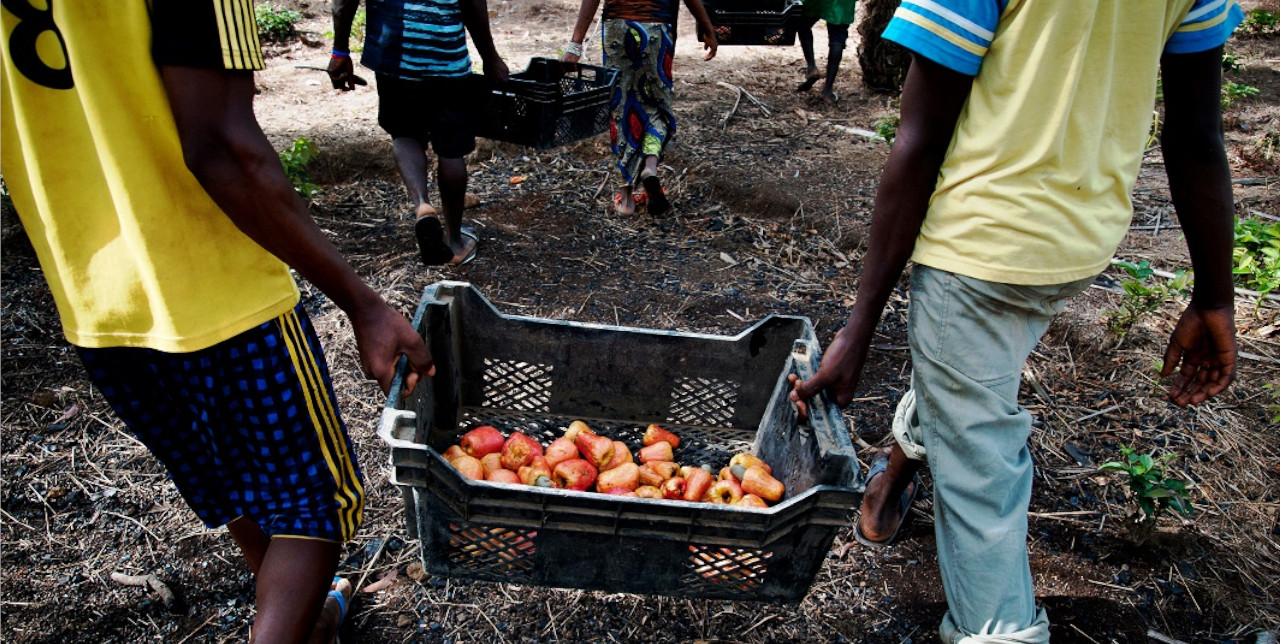15-06-2020 | di COOPI
Sierra Leone. New jobs in rural communities
The European Union funded project “Fostering Smallholder Agriculture in Sierra Leone” (ProAct 2015) created new jobs in the rural communities in the North District of Sierra Leone, addressing around 8,000 farmers.
In the latest years, 8,000 hectares of communitarian lands located in the four districts in the North of the country (Bombali, Port Loko, Karene and Kambia) were transformed into cashews nuts plantation. Farmers planted over than one million seeds which produced enough cashews to answer to community’s needs, to substitute imported products and to start the exportation of nuts to the international market.

Fruit's treatment for home consumption
The project funded by the European Union was a pioneer in the field. Up to today, 80% of the country’s farmers are beneficiaries. Among these, 2,000 farmers who planted cashews in the very first years of the project started picking up fruits. This year, the harvest counted more than 400 tons of cashew nuts and 1,100 tons of apples (cashew fruits).
The fruit’s treatment includes several steps: the harvest, the separation of the nut from the fruit, the fruit’s treatment and disposal, the nut’s nuisance which must be in the shadow to let her get the right degree of humidity and finally the storage and sale.

Primary drying at the farm
The cashew’s fruit has potential as well: it is usually dried and used for soups and stews or preserved in salt or sugar and used as a base for juices and wine.
The harvest of cashews and its fruits happens in a rather short period since the fruits ripen at the same time, thus requiring the presence of an efficient and numerous workforces to guarantee all the necessary procedures.

Selected fruits for the treatment
Families celebrate the harvest period. More than half of the farmers hire at least three seasonal workers for about a month. Besides, families and neighbours participate at harvest time according to the traditional community support. In this sector, the employment of workers is significant and essential for growth in production. In the next years, when the plantation's production will be fully operational, the demand for labour will increase and farmers will further specialize to ensure quality and hygiene standards, necessary to export the fruits to the international markets.
Thanks to the ProAct project, farmers in Sierra Leone understood the potential of cashew plantations and are ever more engaged in growing and processing this product.




 Sierra Leone
Sierra Leone